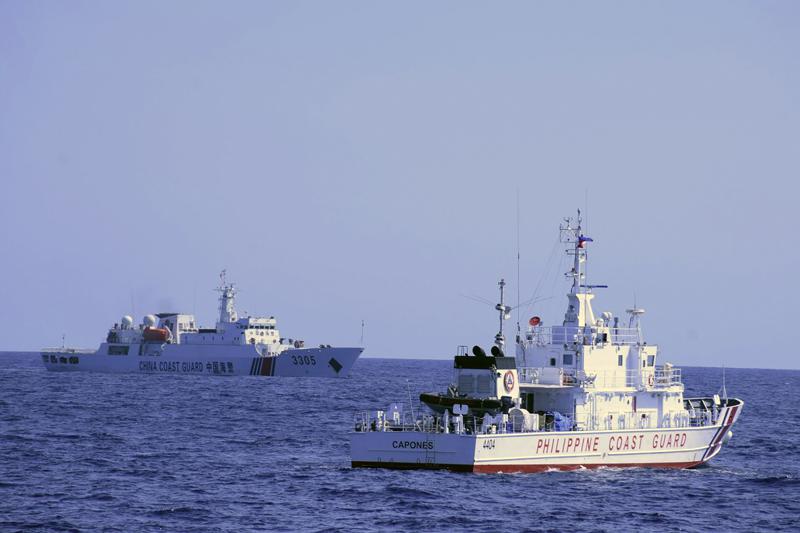The European Union is shifting to become a “global maritime security actor”—expanding its sphere of influence to the Indo-Pacific region which may include the hotly contested South China Sea and East China Sea.

Giovanni Cremonini, head of the maritime security sector of the European Union’s External Action Service, said the EU has economic interests in protecting the sea for trade, critical maritime infrastructure, as well as the maritime environmental concerns and potential consequences of climate change.
The EU is highly dependent on maritime trade—90 percent of its external trade and 40 percent of its internal trade are transported by sea.
Cremonini said they do not intend to be the “NATO of the seas,” but rather provide more value in securing the oceans and seas from transnational maritime threats.
NATO was designed, he noted, to defend the territories of 30 member countries including European countries, US, Canada, who commit to aid one another in case of attack.

“There is certainly no intention to become a naval empire or a maritime empire,” he said at the recent EU Maritime Day workshop.
What the EU envisions is to be a “global maritime security actor” that addresses modern-day threats to maritime security including threat to freedom of navigation.
Currently, the EU has two active ad hoc military engagements—the EU Naval Force Somalia-Operation Atalanta (EUNAVFOR), and the EU Naval Force Mediterranean Operation IRINI (EUNAVFOR MED IRINI). These two are different from NATO and there are no dedicated armed forces under EUNAVFOR. Instead, EU members provide soldiers and assets to military operations sanctioned by EU.
EUNAVFOR is involved in military operation at sea off Somalia, stopping piracy and armed robbery at Gulf of Guinea and protecting vessels of the World Food Programme in delivering food aid to Somalia.
EUNAVFOR MED IRINI, meanwhile, was mandated in 2020 to implement the United Nations arms embargo on Libya with the use of its aerial, satellite and maritime assets. It conducts inspections of vessels on the high seas off the Libyan coast that are suspected to be carrying arms or related materials to and from Libya. It also monitors illicit exports from Libya of petroleum, crude oil and refined petroleum.
In September 2021, the EU adopted its strategy of cooperation in the Indo-Pacific, where members are maritime states including the Philippines. The EU recognized the Indo-Pacific region’s “growing importance” accounting to 60 percent of world’s GDP and with growing geo-political tensions.
Cremonini said the EU looking at expanding their existing EU Coordinated Maritime Presence (CMP) where the European Council declares certain “maritime area of interest,” enabling EU member states to share information, awareness and analysis. It also mandates the use of naval or air assets of EU member states.
In 2021, the CMP was piloted in the Gulf of Guinea. Around 95 percent of worldwide kidnapping for ransom at sea in 2020 occurred in the Gulf of Guinea. In February, the EC declared the North-Western Indian Ocean as another “maritime area of interest.” It will cover the Strait of Hormuz to the southern tropic to the North of the Red Sea towards the center of Indian Ocean.
EU’s approach, meanwhile, in Southeast Asia is geared more toward capacity-building.
The EU has Critical Maritime Routes Indo-Pacific (CRIMARIO) project aims to increase maritime security and maritime domain awareness in Brunei, Cambodia, India, Indonesia, Malaysia, Maldives, Myanmar, the Philippines, Singapore, Sri Lanka, Thailand and Vietnam.
The EU is also active in the Asean Regional Forum, a multilateral forum with 27 members espousing dialogue on security issues.
Cremonini said Russia’s invasion of Ukraine showed the need to uphold international law including the Law of the Sea.
“It’s all part of the same. We want to uphold, promote international law, what we call our rules-based order be it in our neighborhood or be it farther away because the European Union has growing global interests,” he explained.
Source: Business Mirror




